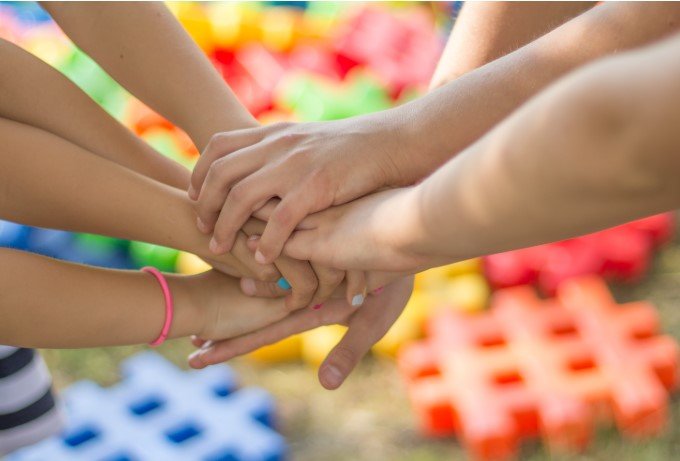Teaching kids the value of sharing and empathy is an essential part of their emotional and social development. These qualities help children build strong relationships, improve their ability to work in groups and foster a caring attitude toward others. As parents and caregivers, we play a crucial role in guiding children to understand the importance of these values. By modeling sharing and empathy, and incorporating them into daily activities, we can help children develop these important life skills.

Start Early by Setting an Example
One of the most effective ways to teach kids about sharing and empathy is by setting a good example. Children learn a great deal by observing the actions and behaviors of adults in their lives. If they see you practicing kindness, sharing with others, and showing empathy in your interactions, they are more likely to adopt these behaviours themselves.
For instance, if you share your own possessions or offer help to a neighbor in need, your child will notice and begin to understand the importance of such actions. Make sure to point out these examples in simple terms, explaining how sharing helps others and showing empathy by considering their feelings.
Encourage Sharing in Everyday Situations
Daily situations offer the perfect opportunity to teach children about sharing. Whether it’s sharing toys with siblings or dividing snacks with friends, these small acts can have a big impact. Encourage your child to share by gently guiding them when they hesitate. Remind them that sharing allows everyone to enjoy things together, making the experience more fun and rewarding for all involved.
You can make sharing more enjoyable by turning it into a game. For example, while playing with toys or having a family meal, praise your child when they share something with others. Positive reinforcement helps reinforce good behavior and shows your child the benefits of sharing.
Discuss the Importance of Empathy
Empathy is the ability to understand and share the feelings of others. Teaching kids to recognize how others feel and respond appropriately is an important social skill. Start by helping your child recognize emotions in themselves and others. Ask questions like, “How do you think your friend feels when you share your toy with them?” or “How would you feel if someone didn’t share with you?”
Books and stories can also be powerful tools for teaching empathy. Choose books that explore characters’ emotions and encourage discussions about how the characters feel. Talking about the emotional experiences of others will help your child relate and understand the feelings of people around them.
Use Role-Playing to Practice Empathy and Sharing
Role-playing can be a fun and interactive way for kids to practice sharing and empathy. You can set up different scenarios where your child has to decide how to act in a situation involving another person’s feelings. For example, pretend that one of their stuffed animals is feeling sad and discuss what they could do to make the toy feel better.
Role-playing encourages children to think critically about others’ emotions and practice sharing in a supportive environment. It also helps them develop problem-solving skills, as they learn to consider how their actions might affect others.
Praise and Reinforce Positive Behavior
As with any behavior you want to encourage, praising and reinforcing positive actions is key. Whenever your child demonstrates empathy or shares with others, praise them for their actions. You can say things like, “That was so kind of you to share your snack with your friend” or “I’m proud of you for asking how your friend is feeling.”
Reinforcing these behaviors will help your child internalize the values of sharing and empathy. Over time, they will begin to recognize the positive impact these actions have on others and will be motivated to continue practicing them.
Conclusion: Building Strong Emotional Foundations
Teaching kids the value of sharing and empathy sets them up for success in their relationships with others. These qualities help children understand the importance of kindness, cooperation, and respect, all of which are essential for healthy social interactions. By modeling positive behavior, creating opportunities for practice, and reinforcing good actions, you can help your child develop these critical life skills.
With patience and consistency, you will help your child grow into an empathetic and generous individual who is considerate of others’ feelings and eager to share their time and resources.





